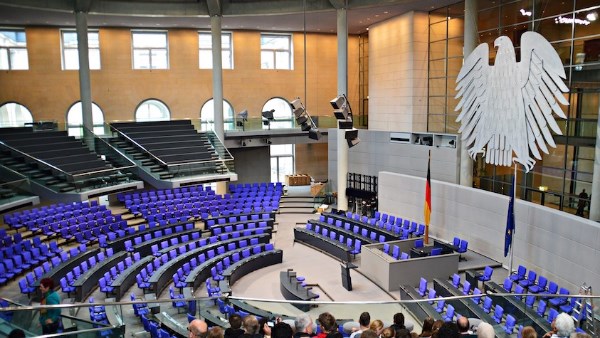
A vote on the constitutional tweaks could therefore be pushed through within the week.
Germany’s fiscal U-turn could be a ‘game changer’ for the country’s sluggish economy, analysts say

Germany’s prospective fiscal U-turn could prove transformational for the country’s struggling economy and for European defense — but Berlin lawmakers don’t have much time to make the historic shift happen.
Fiscal and economic policies were seen as highly contentious during Germany’s previous ruling coalition and contributed to its eventual break-up at the end of last year. Amid ongoing negotiations for a new governing alliance, the Christian Democratic Union and its Christian Social Union affiliate — which led in the February polls — and the Social Democratic Party appear to have achieved something of a breakthrough.
On Tuesday, likely-to-be chancellor Friedrich Merz and other political leaders announced plans to reform the long standing fiscal pillar known as Germany’s debt brake, specifically to allow for higher defense spending. They also revealed a new 500 billion euros ($535 billion) special fund for infrastructure.
Materializing these plans will mean changes to the German constitution, which requires the support of a two-thirds majority in parliament. This would likely work at present — but would be very difficult to achieve once the newly elected parliament representatives come together for the first time later this month.
A vote on the constitutional tweaks could therefore be pushed through within the week.
‘Big, bold, unexpected — a game changer’
“Big, bold, unexpected - a game changer for the outlook,” Bank of America Global Research economists and analysts said in a Wednesday note, adding that the package “meaningfully” changed the outlook for Germany’s economy.
For a couple of years now, Germany’s economy has been sluggishly teetering on the edge of a technical recession, defined as two consecutive quarters of gross domestic product declines. The national GDP has been alternating between expansion and contraction in each quarter throughout 2023 and 2024.
The country is facing a wide range of issues, including infrastructure problems, a struggling housebuilding sector and pressure on some of the industries that have historically strongly contributed to its growth, such as autos.
There is now hope for change. The planned special investment vehicle could benefit the country’s economy, experts believe.
Markets can expect an economic boost and Germany’s growth estimates could likely be increased, Florian Schuster-Johnson, senior economist at Dezernat Zukunft, told CNBC’s “Street Signs Europe” on Wednesday.
“I think in the short term this will just boost domestic demand obviously because there will be a lot of demand for people building these new infrastructures and companies that [are] getting new government orders now,” he said.
Higher defense spending could also have a long-term effect on the economy, leading to increased production capacities that could eventually also come into civil use, Schuster-Johnson added.
It could push Germany above the current NATO target of spending 2% of GDP on defense, Deutsche Bank Research economists said Tuesday.
“Tonight’s robust rhetoric implies that the open-ended borrowing room for defence will be used at a pace that could bring German defence spending to at least 3% perhaps as early as next year,” they said.
Merz suggested that geopolitical developments showed that major measures need to be taken to strengthen Germany’s and Europe’s security and defense capabilities.
“In light of the threats to our freedom and peace on our continent, ‘whatever it takes’ now also needs to apply to our defense,” he added, according to a CNBC translation.
While the policy announcements would largely be beneficial, other fiscal and budget plans from the likely new coalition are still to come and could have their own impact on Germany’s economy, ING’s global head of macro Carsten Brzeski noted.
“We wouldn’t rule out that the official coalition talks will still bring some expenditure cuts, which would lower the positive impact of the announced fiscal stimulus,” he said.
Elsewhere, lawmaker Bernd Baumann who is part of the German far-right party Alternative fuer Deutschland, told Reuters that the party was conducting an initial legal review of the announcement, and reserved the right to take action.





-1120252475029447.jpg)
-920252122624392.jpg)













